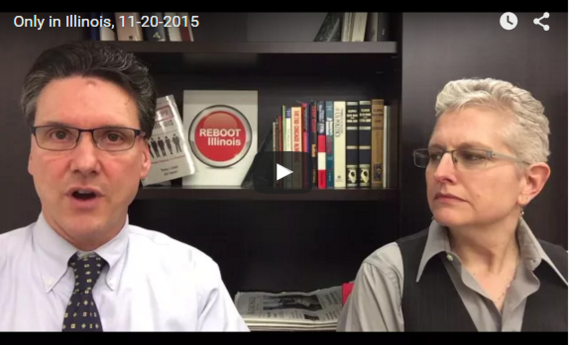On Monday, Gov. Bruce Rauner joined a wave of American governors who announced their states would no longer accept Syrian refugees due to security concerns after the Paris terrorist attacks.
On Wednesday, a family of five Syrian refugees started a new life in Chicago.
The episode was a good example of how much authority the announcement by Rauner -- and similar edicts from 29 other governors -- carried in legal terms. Which is to say, none.
Granting of asylum to refugees fleeing war or persecution is the exclusive province of the executive branch of the federal government, and President Barack Obama this week reiterated his pledge to bring 10,000 refugees from war-torn Syria to the U.S. in the coming year.
State officials have no legal authority to close their borders to refugees, but they're not powerless regarding those who take up residence in their states. State government typically administer federal funding for refugees resettling within their borders. In Illinois, the Department of Human Services handles assistance for housing, health care, language instruction and other services through its Refugee Program:
The Refugee Program procures community-based services which include adjustment counseling, orientation, English as a Second Language, vocational training, job readiness, and job placement. Multi-lingual mental health services are provided for those refugees who experienced severe trauma and require therapy. Of a total of 9 program sites, 6 are in Chicago and 3 are outside Chicago city limits.
The Refugee Program also procures health screening services with local health care providers to ensure that newly-arrived refugees ate provided with complete health screening. The goal of the program is to prevent any public health problems resulting from lack of detection and treatment of communicable diseases.
State government could discourage refugees from choosing Illinois if it declines to act as the go-between for the federal government and the private and public agencies that work with refugees. The bigger unanswered question is how any state could defend restricting services based on a refugee's nationality. The American Civil Liberties Union of Illinois labeled Rauner's edict discriminatory:
We regret that Governor Bruce Rauner, in the wake of the horrible terrorist attacks in Paris, joined the backlash against Syrian refugees. These refugees - fleeing the horror and violence of extremists in Syria - should not be victims anew because of the actions of a few individuals in Paris.
Additionally, refugee admission long has been a federal matter, reflecting our values as a nation, under terms defined by the U.S. Department of State. States have never been given veto power in this area, and should not be afforded one now, especially a discriminatory veto aimed at individuals because of their nationality.
We urge Governor Rauner to re-think this misguided policy and affirm the need to welcome Syrian refugees who are fleeing the brutality of ISIS.
We tried to get details from the Rauner administration on how, exactly, it planned to enforce the governor's temporary suspension of accepting Syrian refugees for resettlement in Illinois. What we got was an updated version of Rauner's original statement:
The Governor has been very clear - we need to preserve our heritage as a state welcoming of refugees while addressing the all-too-real security concerns that continue to evolve every day. A State Department official confirmed to our staff this morning that ISIS has demonstrated an interest in infiltrating refugee populations heading to the West. The official also confirmed that in recent years, some refugees admitted to the United States were later discovered to have terrorist ties. At the same time, we continue to request briefings from the federal government on refugees being resettled to Illinois before they come - and the federal government has no official information sharing mechanism to coordinate directly with Governors on such individuals. As California's governor reportedly said to the White House chief of staff last night, the federal government must evolve with the threat and modernize their information sharing with state governments. This is a reasonable and responsible step to take to ensure we maintain a balance between compassion for refugees and security for our citizens.
That's our topic on this week's "Only in Illinois."


